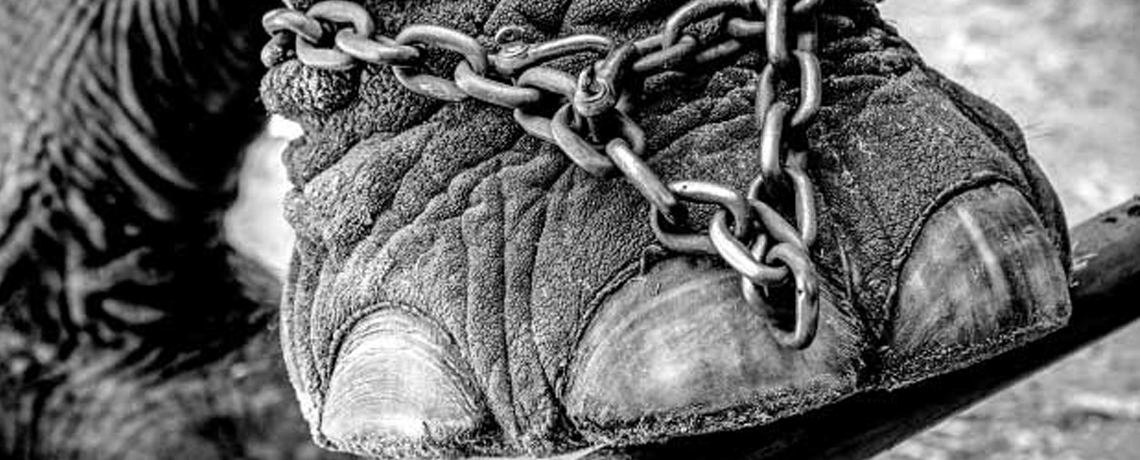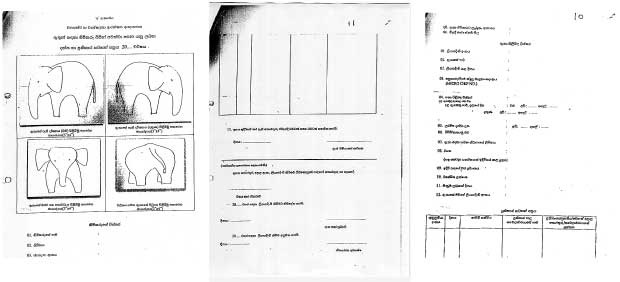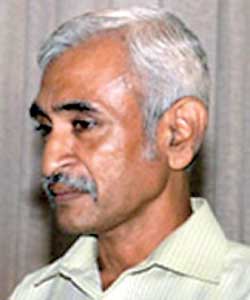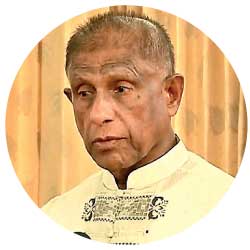24 Aug 2017 - {{hitsCtrl.values.hits}}

 Elephas Maximus Maximus or the Sri Lankan elephant in other words has a closer relationship with us Asians. As depicted in Hindu mythology, the much revered elephant-headed God, Ganesh, itself highlights the importance of this majestic being. Over the years we have been delighted to see elephants in pageants (peraheras), but not once have we thought of the troublesome experiences these majestic beings have to endure. As a result little do we know about how these animals have been exploited during various instances.
Elephas Maximus Maximus or the Sri Lankan elephant in other words has a closer relationship with us Asians. As depicted in Hindu mythology, the much revered elephant-headed God, Ganesh, itself highlights the importance of this majestic being. Over the years we have been delighted to see elephants in pageants (peraheras), but not once have we thought of the troublesome experiences these majestic beings have to endure. As a result little do we know about how these animals have been exploited during various instances.
In a controversial turn of events, an unexpected overcrowding of elephants at the Pinnawala Elephant Orphanage has prompted the Government to giveaway elephants to private individuals and institutions. Following this, a cabinet paper too was dispatched to release 33 cubs back to their owners. These cubs had been illegally captured from the wild. The Daily Mirror spoke to several individuals of varied expertise in the field of wildlife, thus shedding light on the darker side of this issue.
Highlights of the cabinet paper
Recently a cabinet paper was issued with a request being made to give away elephants cared for at the Pinnawala Elephants Orphanage and National Zoological Gardens.
The highlights of the paper are:
The request therefore was to give away elephants with a ‘non-refundable financial bond’ of Rs. 10 million. However the cabinet paper also states the following; “The animals are NOT sold to individuals or institutions as elephants in accordance to the Fauna and Flora Protection Ordinance amended in 2009, Section 22A (12) are ‘deemed to be public property’. Thus they are given to be cared ‘for and on behalf of the State’.

“I dispute the fact that Pinnawala is overcrowded”
-Dr.Sumith Pilapitiya

Speaking to the Daily Mirror, Environmental Specialist and Ex-Wildlife Chief, Dr Sumith Pilapitiya said that the Government has released a cabinet paper requesting the release of elephants due to overcrowding in Pinnawala. “This too is for a sum of Rs. 10 million. I would dispute the fact that Pinnawala is overcrowded and if overcrowding is the problem, there is a land adjoining the Pinnawala Elephant Orphanage which could be used as well. If not, some elephants could be sent to the Ridiyagama Safari Park because that too comes under the Zoological Department. The ownership and custody of these elephants should remain with the Government. Why do private individuals or institutions need to own elephants? There’s nothing called a domesticated elephant. Unlike cats and dogs, that are bred to be domesticated, elephants can’t be domesticated. These private owners are trying to own elephants as a status symbol. Elephants are very social animals,” said Dr.Pilapitiya who has spent a number of years researching on this majestic being.
“So once they are taken out of Pinnawala, they will have no social interaction because that elephant is now alone. Pinnawala has one of the best elephant breeding programmes and breeding can’t happen just because there’s a male and a female elephant. They need to have space for interaction as well. We need to think of what is best for the elephant. It’s time that we look at this situation in Sri Lanka in a more realistic way. Take the pageant for example. We didn’t have elephants at these processions till the rise of the Kandyan Kingdom. Therefore the Government should seriously think why temple processions need elephants. Today we see elephants in even small pageants done for a ‘katina’ (A religious ceremony) as well. Hence the Government has the added task of legally catering to this demand. Elephants in pageants are not a religious requirement because Lord Buddha never said that there should be elephants in a pageant. Therefore the Minister and the relevant authorities should look at this issue in a more practical manner. Now it’s time that these measures are implemented,” Dr.Pilapitiya said.
‘Giving ownership of elephants to private individuals reflects badly on the law’ - Jagath Gunawardena

“The entire decision is wrong,” said Jagath Gunawardena, environmental lawyer and wildlife enthusiast. “Their intention is to give these elephants back to illegal owners and these actions reflect badly on the law. Elephants are public property and once these elephants are handed over to owners, nobody will abide by the law. Hence it’s giving a wrong message to the country. I also don’t believe that Pinnawala is overcrowded because there are no facts or statistics to prove it. If that is the case, then why can’t they send these elephants elsewhere?”questioned Gunawardena.
“Individual owners will not have 100% ownership”
- Gamini Jayawickrama Perera

Wildlife and Sustainable Development Minister, Gamini Jayawickrama Perera said that since two Non-Governmental Organisations (NGOS) have filed cases with regard to this issue, the decision is still pending. “Although the cabinet paper says Rs. 10 million, it is a rough estimate.
However, the individual owners won’t have 100% ownership of the elephant. They have to sign a deed and officially take the ownership of the elephant and if we find out that the elephant is being ill-treated we have the authority to take it back,” said Perera.
‘Elephants are public property’ -Rukshan Jayawardene

Airing his views to the Daily Mirror, Wildlife and Nature Protection Society (WNPS) President and wildlife enthusiast Rukshan Jayawardene said that as much as elephants are protected under the Flora and Fauna Protection Ordinance, they also become public property at times. “Private individuals need elephants because it’s a prestige symbol. Elephants are living sentient beings, but unfortunately, protection is limited to the statute books. Also what is overpopulation? If there are more leopards, bears and elephants we need to protect them because they are our natural resources. Why should they be given to private owners? Can we be sure that the elephant will be treated well? Once the elephant is in the custody of a private owner, there’s a high tendency of it being smuggled as well. If these individuals could pay Rs. 10 million for an elephant, how many more bucks would they need to keep the Department of Wildlife Conservation (DWC) and other authorities away? This is more like a mafia because these people still have connections with those who are in power and those who were. Back in the day elephants were trained to build tanks and other massive structures, but at this day and age of industrialisation we don’t need elephants for these purposes and therefore they shouldn’t be kept in captivity. So this is a wake-up call for the Government. Hope this issue doesn’t fall on deaf ears,”said Jayawardene.
The plight of Elephas Maximus Maximus
In an investigative video released a couple of weeks ago by LT Magazine - a Sri Lankan magazine that highlights matters of human interest- revealed the plight of the Sri Lankan elephant. A team of wildlife enthusiasts including Dr.Sumith Pilapitiya, Rukshan Jayawardene, Dr.Prithiviraj Fernando – Chairman, Centre for Conservation and Research, Dr. Eric Wickramanayake, Chair and Science Advisor, Environmental Foundation Limited (EFL) and OtaraGunawardena, Founder of Otara Foundation pooled in their concerns. Some of the highlights of these concerns are:
For more information watch the video at:https://www.facebook.com/LifeTimesSL/videos/1898110206872522/
The Daily Mirror also learns that a request has been made to release 16 elephants provided that permit holders place a guarantee worth Rs. 10 million. The request is valid till September 20. However, attorney-at-law Sujeewa Jayasinghe further said that elephants with permit numbers 203, 209 and 231 will not be released.
23 Dec 2024 1 hours ago
23 Dec 2024 2 hours ago
23 Dec 2024 2 hours ago
23 Dec 2024 3 hours ago
23 Dec 2024 3 hours ago